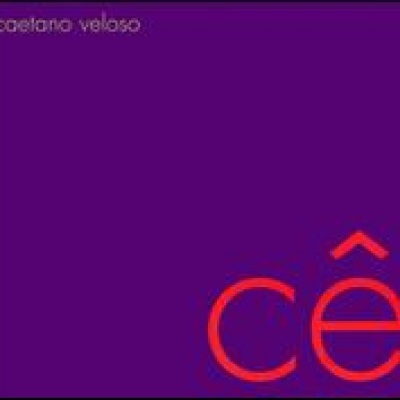
Cê
by Philip JandovskýDuring his long career, spanning five decades, Caetano Veloso has managed to sustain a remarkable consistency, year after year composing beautiful, inventive, and very often simply ingenious music. His previous album, A Foreign Sound, where Caetano interpreted classics from the American popular music scene, was widely applauded abroad and especially in the U.S., but Brazilian listeners were much less impressed. And truth be told, by Caetano's own high standards and with the exception of a few songs, like the reggae-rap version of Bob Dylan's "It's Alright Ma," A Foreign Sound lacked much of Caetano's usual inspiration. Cê, though much lighter and unpretentious, suffers from the same lack of lucid inspiration that has always been the trademark of Caetano. It is not in anyway a bad album, but after having been spoiled with Caetano's unique brand of musical magic and brilliance for so long, Cê just doesn't excite. For the recording, Caetano teamed up with a trio of young musicians, thus forming a traditional rock band relying on an electric guitar, a bass, drums, and the occasional keyboards. The sound is finely tuned and further helped by the excellent production by Caetano's son Moreno and Pedro Sá. The music ranges from the light, carefree punk-pop of tracks like "Outro" and "Odeio" to the laid-back, sentimental "Não Me Arrependo" and "Minhas Lágrimas." "Musa Híbrida" is an interesting mix of samba and rock, with a touch of '70s funk. On "Não Me Arrependo," Caetano uses influence from both Lou Reed and Peninha, and it is perhaps the most melodically impressive song on the album. On "O Herói," Caetano, in a talking voice, recites the lyrics over a sparse and slightly hip-hop-inspired rock groove. The gentle and sweet "Um Sonho" is another highlight. Cê is an enjoyable, finely crafted, and elegantly executed album, but at the same time very far from Caetano's best.
